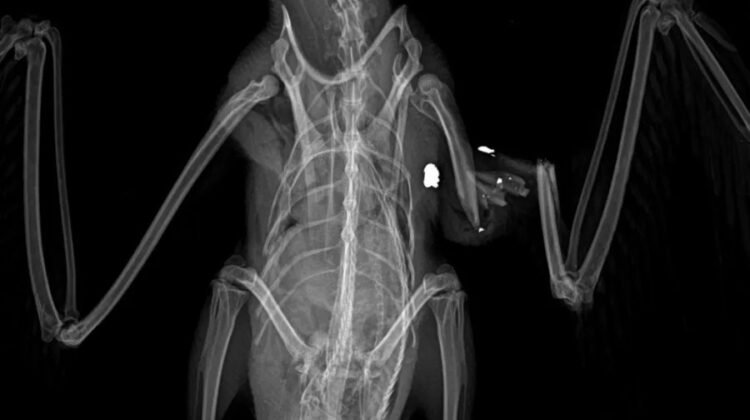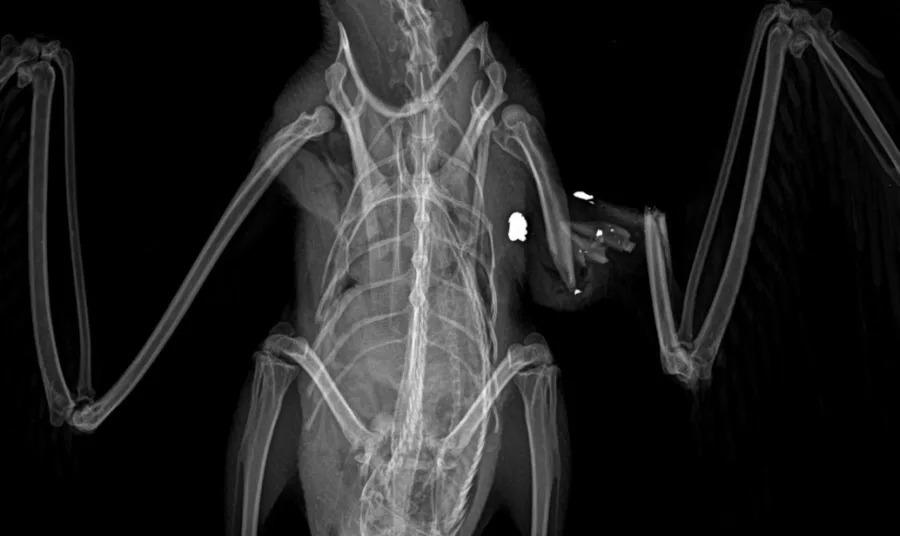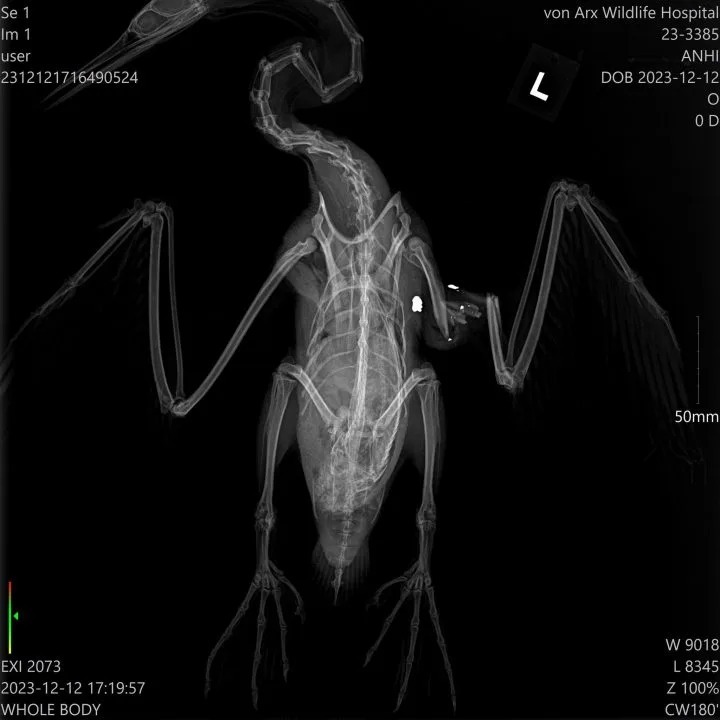
In a disheartening incident at Big Cypress National Preserve near Miami, an anhinga was discovered on the side of a secluded road with a fractured left wing, the Conservancy of Southwest Florida reported. Following a thorough physical examination and radiographs, it was determined that the bird had fallen victim to a gunshot wound. Regrettably, due to the severity of the fracture, the conservancy faced the somber decision of humane euthanasia as the only viable option.

Expressing profound sorrow, the conservancy conveyed the heartbreaking nature of the situation, emphasizing the tragedy of a gunshot victim found in the vast and wild expanse of Big Cypress National Preserve. The incident raises concerns not only for the welfare of wildlife but also for the illegal activities that led to such a grievous outcome.
Under the protective umbrella of the Migratory Bird Treaty Act, intentional harm to migratory birds is strictly prohibited. The Act outlines the illegality of actions such as intentional killing, capturing, selling, trading, or transporting protected migratory birds without prior authorization.

While legal hunting seasons may exist for certain bird species, the shooting of the anhinga not only violated state laws but also contravened federal regulations. The conservancy underscored the significance of adhering to these laws, emphasizing the need for responsible and ethical behavior when it comes to wildlife.

The conservancy’s statement serves as a reminder of the collective responsibility to protect and preserve the diverse avian species inhabiting natural reserves. Encouraging vigilance, the conservancy called upon the community to report any instances of bird shooting or illegal activities related to wildlife to the Florida Fish and Wildlife Conservation Commission. By fostering awareness and cooperation, the conservation community aims to safeguard the lives of these magnificent creatures and uphold the principles of environmental stewardship.

Leave a Reply